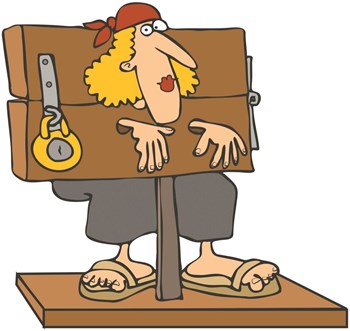
As the old saw goes, one bad apple can spoil the whole bunch. The same idea often holds true for residents who choose to ignore bylaws or house rules, even if they are well-intended and in place to serve the greater good of the community. In the end, it’s the board that must take the pulse of the community and determine what rules are appropriate and instruct the property manager to enforce them as necessary.
Setting the Rules
For homeowner associations and condos in Florida, the lines are drawn clearly on how house rules should be implemented. “The property manager should be the eyes and ears of the board,” says Evonne Andris, an attorney with Hyman & Mars LLP in Miami. “He or she should bring concerns and issues they encounter regularly to the board’s attention. The property manager should work to establish rules and the board itself votes on approving rules. Generally, rules are the only association documents which can be revised by a board of directors; revisions to all other governing documents generally require a unit owner vote.”
Rules are created for many reasons, but some unit owners forget why some of them are there in first place, or that they have a personal stake in their enforcement. “If an issue continues to happen regularly, and it is related to the use of the property and the protection of the values of the units, it should be brought to the board’s attention for review and discussion of instituting a new rule or revising the current rules,” says Andris.
That said, from time to time, unit owners call into question the validity of some rules. The most common include pet policies, noise complaints and issues such as whether smoking is allowed in common areas, or banned outright. “We often have new clients provide us with a huge book of rules that have been adopted and modified over the years and who discover, much to their surprise, many of those rules are invalid and unenforceable,” says Lisa Magill, an attorney wtih Becker & Poliakoff in Fort Lauderdale..
Since house rules can generate controversy rather easily, boards need to be strong and effective authorities to keep the peace. That means boards should read up on exactly what their powers are—as well as what they also cannot do. “The board first has to establish who or what has the authority to promulgate or change the rules,” says Andris. “The Florida statutes do not automatically give every board of directors that authority, so you must look to the governing documents, generally the Declaration of Condominium, for that authority.”
Most often, when new residents move into a property, they do so in part because they like the lifestyle it affords, and rules can play a large part in preserving that lifestyle. With that in mind, boards should consider the whole of the property when judging the validity of a rule. “Rules and regulations are an important part of community association living but must be closely tailored to the needs of the community,” says Magill. “Many people choose to move into a particular community due to enforcement of use, maintenance and architectural restrictions. It makes sense, residents may not want to look at basketball hoops, soccer goals and other play or sports structures when driving to and from work every day. On the other hand, rules prohibiting these items are probably not ideal for a community mainly comprised of families with children.”
Can Good Rules Go Bad?
In most cases, the common house rules included in the governing documents are by and large deemed “good” by the board and residents. But, some existing rules simply become antiquated and require periodic revisiting. “Obviously, any rules that expose the association to liability are bad. Many associations simply forget to eliminate restrictions against children, even though the community doesn't qualify as housing for older persons. Those restrictions may become fodder for a housing discrimination complaint,” says Magill.
A point of confusion for boards and unit owners can be how to reconcile declarations and house rules. Bylaws, which appear in a building's declarations are based on state law. Bylaws grant the board's authorities including creating house rules. Bylaws also limit what those house rules can be. And it's not as simple as the board simply filling in the gaps with what the declarations do not say. “For example, if a declaration does not say there is any restriction on pets, and a board then makes rules on pets in the building, that could be challenged later in court as unenforceable,” says Michael Bender, an attorney at Kaye Bender Rembaum in Pompano Beach..
Since declarations are determined by state laws, what they don't include can imply a legal right for unit owners, and boards need to be very careful about this. “Boards should consider counsel before adopting any rules,” says Bender.
And not all rules are one in the same. Bylaws usually conform to how the board or the association operates as a corporate entity, and spell out the specific powers and duties therein. House rules and regulations usually relate to use restrictions on the part of residents.“Rules do not work when they conflict with the association’s governing documents. In addition, rules do not work when they contain restrictions that are better suited for the Association’s governing documents,” says Andris. “Rules need to make sense for the community. Onerous rules that don't seem to have any real purpose are often ignored or blatantly violated,” says Magill.
As Magill notes, oftentimes a board will have to revisit existing rules and determine if there are any changes required due to new legislation. In some cases, a rule might simply be outdated and require removal. In the latter case, these rules are rarely enforced and a general sense of apathy sets in for residents, the board and the manager.“Rules need to change with the changing times. When I first started in this business, most of the condominium associations prohibited owners from having trucks parked in the lot. Over the years as trucks became more commonplace and accepted as personal transportation, as opposed to just work vehicles, those rules fell by the wayside. In other words, rules need to make sense for the community. Onerous rules that don't seem to have any real purpose are often ignored or blatantly violated,” says Magill.
Enforcement & Removal
When rules are ignored or otherwise overlooked, there are ramifications, which can happen immediately or gradually over time. To this end, house rules that go unenforced can compromise the overall operation of the homeowner community. “Rules, like any covenant or restriction in the declaration, are required to be uniformly enforced in order to remain viable. So, if there are rules that the board knows or should know are being violated, and they don't seek to enforce them, then the board runs the risk of waiving the ability to enforce those rules in the future—because if you fail to enforce to rules against some, and try to enforce them against others, you will face a selective enforcement defense,” says At the same time, “Whether the association would face legal action by an owner claiming it wasn't enforcing the rules, I haven't seen a lot of that,” says Bender. Board members can be also be voted out by residents. This can be an issue if a board insists on drafting and enforcing rules that a resident or residents deem unfair, illegal, or otherwise infringe on their use and enjoyment of the property.
As the case often is, one or two residents might find issue with a rule or two, and continually break them, which forces the board’s hand and causes them to react. Boards should be proactive and deal with an issue promptly before the conflict escalates. In Florida, recent statutes have given boards more leeway to execute their authority. “The law now allows condo associations to fine, regardless of whether fining is authorized in your governing documents—so long as the fining procedures are properly followed,” says Bender. “If a fine is properly approved you can use that to suspend an owner's voting rights. You can also bring legal action against that owner. Generally, that would start with a warning letter of the violation, and if they don't respond to that, then refer the matter to counsel to send a more firm demand letter. If they still don't comply then legal action would follow,”says Bender. Legal action could turn into a lawsuit, but often mediation provides better outcomes for both parties.
For many well-intended boards and property managers, determining at which point to involve an attorney is often confusing. “Benjamin Franklin said 'an ounce of prevention is worth a pound of cure.' Community leaders should employ that principle. Ask the attorney whether you can adopt a particular rule or regulation and then find out the proper procedure required. The board needs cross its 't's' and dot its 'i's' on the front end if it wants to be successful in rule enforcement later on,” says Magill.
Andris also says boards should always consult an attorney when it comes to house rules, especially if they're in doubt. “Governing documents differ, therefore associations should consult their attorney to ensure that proposed rules do not contradict the association’s governing documents. In addition, associations should consult their attorneys for the purposes of the enforcement of rules,” she says.
Remember, whatever your board’s approach to rule-making and rule-breakers is in your building, professionals stress that establishing a sound, rational set of fair and enforceable rules is always best and the easiest way to promote harmony in your building community for all concerned.
W.B. King is a freelance writer and a frequent contributor to The South Florida Cooperator. Editorial Assistant Tom Lisi contributed to this article.





Leave a Comment